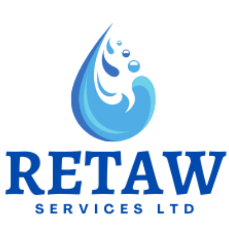RETAW Services
Microbiological Sampling Services
Retaw Services Ltd is aware that microbiological sampling of water systems is often thought of as the first option, or even that a good sampling result indicates no further action is required. Unfortunately, this is not the case. Sampling should be undertaken according to a plan and often for one of these reasons: –
- One-off sampling for compliance, to evaluate whether the water quality conforms to regulations, guidance, specifications or specific conditions.
- Ad hoc sampling for verification, to provide assurance that the water being used is suitable for its intended use.
- Sampling for investigation – searching for the cause of concerns or complaints about water quality.
- Random sampling – economically driven or voluntary sampling used to help confirm or otherwise that the hygiene controls remain effective.
- Identification and implementation of schemes for commissioning, routine and investigative monitoring of water quality.
Legionella sampling
- Sampling for Legionella bacteria in water systems – code of practice is a good base from which to design a sampling plan. However, while sampling in accordance with this standards method (Pre-flush samples and post-flush samples) full application of the standard is seldom adopted, due in part to the suggested number of samples.
- Ensure that you have a sampling plan,
- That the sampler is competent,
- That the samples are transported correctly,
- That the laboratory is accredited for Legionella analysis (UKAS)
- That you have an action plan for positive results (5 – 10% of samples may return positive results).

- Total viable counts
- Coliforms
- Enterococci
- E. coli
- Pseudomonas aeruginosa
- Pseudomonas SP
- Other opportunistic pathogens
Available Sampling
- RSL can offer many sampling options for drinking water
- Spa and Swimming pools
- Closed Systems
- Process waters
The Legionella Control Association requires that Retaw Services Ltd need to tell our clients that it is the responsibility of the dutyholder/responsible person to: –
- Have a risk assessment and written scheme of control in place, which may include a Legionella sampling programme and to make this available to the LCA member
- Provide sufficient information to enable the LCA member to design an appropriate sample plan
- Make systems available and ensure safe access for sampling
- Participate in the review process
- Provide notification and any necessary instruction on known risks and safety requirements in the areas the LCA member will be working e.g. access to your asbestos register
